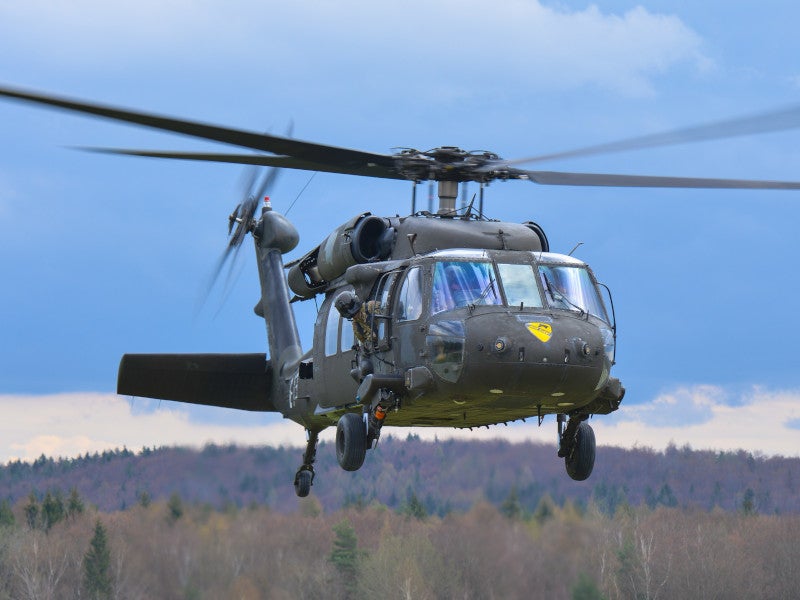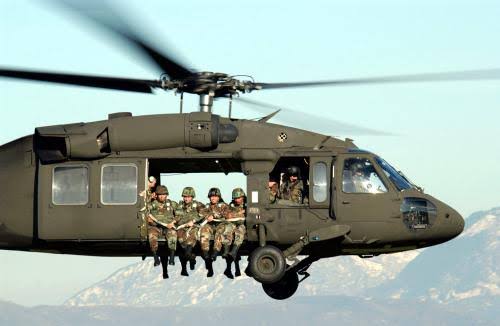Maintenance and Upkeep for UH 60 Helicopters
Maintenance and Upkeep for UH 60 Helicopters
Blog Article
The Influence of Lasting Practices on the Future of Airplane Workflow and Emissions Reduction
As the aeronautics market faces raising scrutiny over its ecological effect, the fostering of lasting methods emerges as a critical path towards future airplane procedures and exhausts decrease. Innovations in lasting aviation gas and innovations in hybrid propulsion modern technologies stand at the forefront of this transformation, encouraging significant reductions in greenhouse gas exhausts.

Review of Lasting Practices
Sustainable techniques in aircraft operations include a series of strategies targeted at reducing environmental influence while maintaining operational performance. These techniques are important in the aviation market's dedication to minimizing its carbon footprint and adhering to worldwide ecological criteria. Secret efforts include maximizing flight paths to lower fuel usage, improving maintenance procedures to guarantee aircraft run at peak performance, and carrying out innovative technologies such as winglets and lightweight materials that improve aerodynamics.

Involving and educating team on sustainability methods also play an essential function, cultivating a society of environmental responsibility within organizations. On the whole, the combination of these lasting techniques not only aids minimize exhausts yet likewise boosts the long-lasting viability of the aviation market, guaranteeing it fulfills the demands of both consumers and regulative bodies while adding to global sustainability objectives.
Ingenious Gas Alternatives
Many ingenious gas options are becoming pivotal services to decrease the aeronautics industry's reliance on traditional nonrenewable fuel sources. Amongst these choices, Sustainable Air travel Gas (SAFs) have actually obtained substantial focus because of their possible to lower lifecycle greenhouse gas emissions by up to 80% contrasted to conventional jet fuels. SAFs are obtained from numerous feedstocks, including waste oils, farming residues, and also algae, making them a flexible option for the industry.
Another promising option is hydrogen gas, which, when used in gas cells, produces just water vapor as a result. This zero-emission possible presents a considerable possibility for decarbonizing trip procedures, particularly for short-haul flights and regional aircraft. In addition, electrical propulsion systems are being explored, leveraging battery technology to power airplane. While current battery capacity limits range and haul, continuous advancements might quickly render electrical flights feasible for certain applications - uh 60.
Last but not least, biofuels stemmed from biomass are being examined, offering a renewable alternative that can be combined with traditional fuels. Collectively, these cutting-edge gas alternatives represent a vital step toward attaining a sustainable air travel environment, aligning with global exhausts decrease targets and improving the sector's environmental stewardship.
Technological Innovations in Aviation

Just how can technical improvements reshape the learn this here now future of aeronautics? Advancements such as hybrid and electric propulsion systems are at the forefront, encouraging considerable decreases in fuel usage and greenhouse gas emissions.
Additionally, the implementation of advanced products, such as light-weight composites, adds to boosted the rules of aerodynamics and gas efficiency. Using synthetic knowledge and maker understanding in trip operations enhances course preparation and reduces fuel shed by making it possible for real-time modifications based upon climate and website traffic problems. Furthermore, the growth of independent and from another location piloted airplane systems stands to revolutionize freight and passenger transport, possibly raising performance while reducing human error.
Additionally, sustainable aeronautics technologies, including sophisticated air website traffic monitoring systems, can improve procedures and decrease blockage, causing reduced emissions throughout trip. These improvements jointly represent a paradigm change in aviation, promising a future where sustainability and operational efficiency are linked, thereby supporting the industry's dedication to lowering its ecological influence.

Governing Structure and Conformity
Because of the growing emphasis on ecological stewardship within the air travel industry, the governing framework governing aircraft procedures is advancing to advertise lasting methods. Regulative bodies, such as the International Civil Aeronautics Company (ICAO) and various nationwide aviation authorities, are presenting rigorous guidelines focused on reducing emissions and improving operational effectiveness.
These guidelines usually include the adoption of Sustainable Air travel Fuel (SAF), which has been acknowledged as an essential component in attaining reduced carbon footprints. Conformity with these policies needs airlines to carry out sophisticated technologies and functional practices, such Read More Here as enhanced flight courses and enhanced air web traffic administration, to minimize gas intake.
Furthermore, the enforcement of discharges trading systems and carbon countering efforts is coming to be progressively common, engaging airline companies to check and report their exhausts accurately. Non-compliance can cause considerable fines, hence pressing operators to prioritize sustainability in their service models.
Ultimately, the advancing regulatory landscape not just drives innovation and you could try these out investment in eco-friendly technologies yet additionally cultivates a society of liability within the air travel market. As these frameworks remain to establish, the emphasis on lasting practices will certainly be important to attaining the field's long-lasting environmental objectives.
Future Patterns in Airplane Workflow
As the aviation sector adapts to a significantly stringent regulatory setting, future patterns in aircraft operations are established to concentrate on ingenious services that even more enhance sustainability and performance - uh 60. Key growths will likely include the adoption of sophisticated air website traffic monitoring systems, which utilize real-time information and expert system to enhance flight courses, lowering gas usage and emissions
An additional considerable trend is the enhanced assimilation of lasting aviation gas (SAFs) These options to conventional jet fuel, stemmed from sustainable sources, can substantially reduce lifecycle greenhouse gas exhausts. The sector's dedication to SAFs will likely speed up as airline companies collaborate with gas manufacturers to guarantee accessibility and cost-effectiveness.
Furthermore, the push in the direction of electrification and hybrid propulsion systems is acquiring momentum. Arising airplane styles will incorporate these innovations, supplying quieter and more reliable operations, particularly for short-haul trips.
Conclusion
The fostering of lasting aviation fuels, combined with advancements in electric and hybrid propulsion systems, is crucial for decreasing lifecycle greenhouse gas exhausts. Maximizing flight courses and embracing cutting-edge technologies contribute to a quieter and extra ecologically friendly aviation industry.
Technologies in sustainable aviation fuels and innovations in hybrid propulsion innovations stand at the center of this transformation, appealing considerable decreases in greenhouse gas emissions.Many ingenious gas options are arising as crucial solutions to decrease the air travel sector's dependence on conventional fossil gas - uh 60. Among these options, Lasting Air travel Fuels (SAFs) have acquired substantial focus due to their possible to decrease lifecycle greenhouse gas exhausts by up to 80% compared to traditional jet fuels.Another significant pattern is the increased combination of lasting aeronautics gas (SAFs) The adoption of sustainable aeronautics gas, paired with improvements in electric and hybrid propulsion systems, is essential for decreasing lifecycle greenhouse gas emissions
Report this page